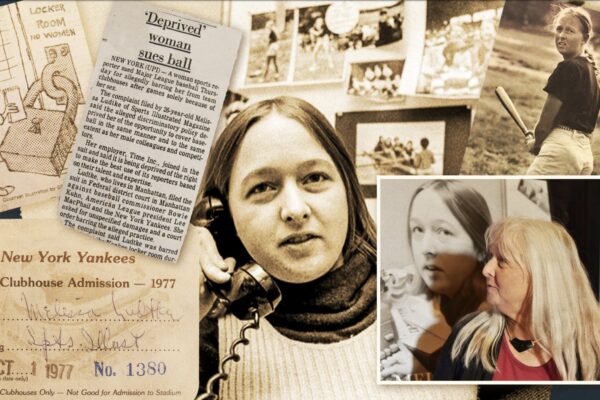By Jeffery Green | @Jeffery_AGreen
Sports Capital Journalism Program
ATLANTA – On the evening of Martin Luther King Jr. Day, not far from the Center that bears his name and Ebenezer Baptist Church where his national reputation grew, the University of Notre Dame played a football game that could make Marcus Freeman the first Black head coach to win a major-college national championship.
“What a fitting setting for him, as a young black coach, I love it,” Eddie Robinson III, grandson of the late Hall-of-Fame coach Eddie Robinson, whose 408 victories included nine Black College National Championships in his 57 seasons at Grambling State University.
Robinson’s role in the history of the sport included a pivotal role in the integration of professional football. He coached more than 200 players that went on to play in the National Football League and the old American Football League. For everything Robinson was able to do for the sport and society, the Football Writers Association of America named its Coach of the Year award after him in 1997, his final season as coach at Grambling.
At the age of 35, with no head coaching experience, Freeman was promoted to head coach at Notre Dame more than three years ago following the departure of Brian Kelly to Louisiana State. Freeman has repeatedly given credit to former athletic director Jack Swarbrick and former university president Rev. John Jenkins for the vision that created his opportunity.
“What I continue to hope is that people get opportunities based off their actions and not the color of their skin,” he said. “…We want to make sure we continue to give the right people opportunities to lead our young people, and I believe in that.”
Robinson III agrees. “It’s all about getting a chance,” he said. “As a minority coach… there are opportunities that make themselves available, but the question is will they be given a chance to prove themselves?”
With only 16 African American head coaches at the Football Bowl Subdivision level out of the 134 available positions, according to the website NCAA.com, advocates for opportunity are important for a multitude of reasons.
Not only can Freeman’s success help create more opportunities, but his presence can offer possibilities to his players. “Coach Free sets an example for people that look like us,” Notre Dame running back Jeremiyah Love said. “Black boys, black men having success… It’s great to see him at this point. It’s just really inspiring for others to see him on the big stage and give them confidence to do what they got to do to get that far as well.”
Throughout Notre Dame’s playoff run in the past month, Freeman has politely deflected personal attention while emphasizing the importance of his team’s preparation and focus. Robinson III recognized parallels between Freeman and his grandfather.
“He always just thought of himself a coach,” Robinson III said of his grandfather. “He knew he was Black but he just wanted to coach. He didn’t put a color on it. He always thought of himself as just an American, and he would tell you nobody’s going to out-American him… Coming up through Jim Crow, and in all that, he still stuck to his American Dream which was just to be the best coach he could possibly be.”
While Freeman maintained his focus on Notre Dame’s opportunity to win a first national championship since 1988, he understood the significance of the day. “As far as playing the National Championship game on MLK Day, to me the attention should be on MLK Day,” Freeman said, “and what he did for our country, and the progress he made for equal rights and progress for all people. Martin Luther King Day is about celebrating that man and the impacts he’s made on our country.”


